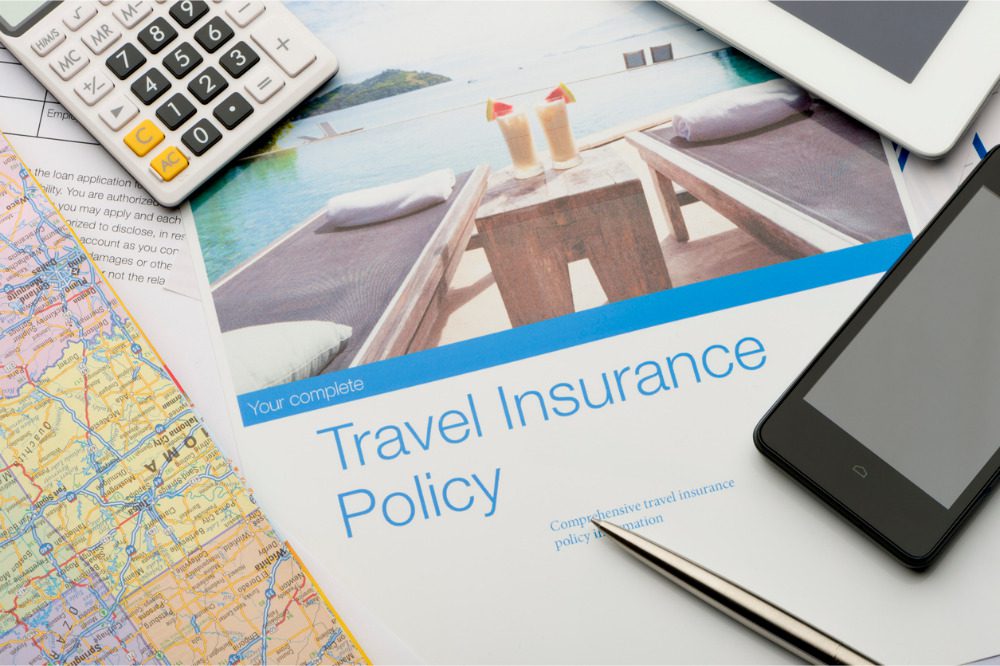Nine simple ways Canadian travellers can save on insurance costs

Annual travel insurance plans posted the biggest increase at a whopping 1,229%, followed by trip cancellation policies at 1,175%. All-inclusive coverage, the most comprehensive plan type, also registered a massive spike in interest, with inquiries climbing 1,032% year-on-year.
“While travel intent may be up, the COVID-19 virus remains active – and many Canadians have the foresight to consider travel insurance to mitigate risks,” RATESDOTCA noted in its analysis. “As Canadians plot their next getaway or travel to see family overseas, they’ll want to ensure they protect themselves financially if there are cancellations or travel guidelines change.”
Read more: Top 10 Canada travel insurance changes, initiatives to address the coronavirus
Industry insiders, however, have observed a shift in how Canadian holiday goers purchase travel insurance since the pandemic began.
“Before [COVID-19], the focus was often on premium,” Louiselle Landry, business development manager for TuGo, a British Columbia-based travel insurance company, told RATESDOTCA. “But we’re starting to see that people have a bit more awareness that travel insurance goes beyond that. People are now looking into what they are purchasing and making sure they have the proper coverage to have that peace of mind when they’re travelling.”
What does travel insurance cover?
Most travel insurance policies in Canada are designed to cover costs incurred from health-related emergencies and disruptions to the travel itinerary. Here are the common travel insurance plans that Canadians can access, according to the comparison website.
Travel insurance type
Features and benefits
Single-trip emergency medical travel insurance/single-trip travel insurance
Covers emergency medical expenses that may arise during the trip
Coverage for a single trip can be up to 365 days
Provides up to $10 million in emergency medical benefits
Travellers may need to complete a health questionnaire to qualify for the policy depending on how old they are
Annual emergency medical travel insurance/multi-trip travel insurance
Covers all trips taken over the course of a year
Best for people who take multiple trips in a year, and those who travel frequently for business
Trip cancellation and trip interruption insurance
Covers the full cost of the trip in the event it is cancelled, delayed, or interrupted for reasons beyond the traveller’s control
Trip cancellation and trip interruption insurance are similar insurance types, but the difference is that trip cancellation typically comes into play before the trip, while trip interruption applies once travellers have left for the trip
Best for travellers who have medical coverage through their employer’s health benefits or credit card
Top-up travel insurance
Optional insurance coverage for travellers who already have coverage through an employer or a credit card but who are not covered for the entire length of the trip, or do not have enough coverage
Ensures travellers get extended coverage for the full length of the trip
All-inclusive travel insurance
Bundles common travel coverages, including emergency medical, loss of baggage, and trip cancellation and interruption insurance into a single policy
Most expensive option, but also offers the best protection
Source: RATESDOTCA
Does travel insurance cover COVID-19-related events?
The good news for Canadian travellers is that unlike at the onset of the pandemic when COVID-19 coverage was rare, travel insurance providers have since stepped up their game and have started offering protection against disruptions related to the coronavirus.
Tourists, however, also need to consider a few points before buying travel policies, according to insurance comparison website HelloSafe.ca. These are:
Coverage may be “explicitly excluded” if the destination countries are under an “avoid non-essential travel” (Level 3) or “avoid all travel” (Level 4) advisory at the time of purchase.
COVID-19 vaccination status may also affect coverage – those unvaccinated by choice may have their claims declared ineligible by their insurers.
Read more: What COVID-19-related cover do Canada’s top travel insurers provide?
RATESDOTCA, meanwhile, listed the common COVID-19 protections that insurance companies offer as part of, or as an add-on for, emergency medical travel insurance. These include:
Emergency medical costs – including intensive care, medical tests, and medications – for up to $1 million per insured
Non-COVID-19 emergency medical coverage for physical injury and illness for up to $5 million per insured
Quarantine related costs – including meals and accommodation – for up to $2,100 per insured
Ambulance transportation costs
Air evacuation from destination to Canada, including a one-way economy ticket for the insured, and may also cover passage for dependents and travelling companions
Repatriation costs up to $5,000 per insured in the event of death
How much does travel insurance cost?
According to RATESDOTCA, with “travel getting more expensive, all the more reasons [for Canadian vacationers] to insure it.”
“Though we hope we’re in the tail end of the pandemic and coming out of it now, you never really know what could potentially happen,” said Tanisha Kishan, RATESDOTCA expert and chartered insurance professional. “If you don’t purchase travel insurance and a government travel advisory changes, or you get sick, you may not qualify for particular products or reimbursement for your trip.”
Read more: Travel insurance rates are still up in the air
Several factors impact travel insurance premiums, including the number and age of the travellers, the total length of the trip, and the type of coverage needed.
The comparison website calculated a travel insurance quote for a non-smoking 35-year-old male traveller on a 10-day trip abroad with no pre-existing condition and who is taking out a policy with $2 million in coverage and $0 deductible. The best average per trip the company found was $25.35.
How can Canadians save on travel insurance costs?
Rising travel prices are prompting many international travellers to find ways to cut costs to be able to afford their dream vacations. Among these expenses is travel insurance. To find out how holiday goers can effectively save on premiums, Insurance Business checked out the websites of several industry specialists for practical tips and advice. Here’s what they say Canadian travellers should do to get the best coverage at the cheapest possible rates.
1. Be aware of what you’re already covered for
Some credit card providers already offer travel insurance as part of their package. This is the reason why experts recommend that card holders check if the travel policy included in their credit card purchase provides enough coverage.
“Two insurance contracts cost more money, and you won’t be allowed to file two claims if ever there’s a problem,” national insurer CAA noted. “Don’t tick the ‘travel insurance’ box on your checklist too soon, though. You need to make sure your existing policy provides sufficient coverage.”
Read more: Travel expert urges Canadians to check their insurance policies before travelling
2. Opt for an annual plan
For those who travel several times a year, it is better to purchase an annual travel policy, also called multi-trip insurance, rather than a single-trip plan every time they leave.
“You have one contract covering the whole year, so you only have to go through the purchase process once,” CAA explained. “You don’t need to contact your insurer again before every departure. You can also choose from various maximum lengths of stay.”
3. Avail of group discounts
Group rates are typically cheaper than those for individual travellers, according to Toronto-based travel insurance specialist Ingle International. The firm added that even groups as small as five can avail of big discounts. For families, premium prices can be lower for those with three or more members.
“Typically, rates are only two times the price of the oldest family member’s policy and some plans do not limit the number of family members who can be included under one policy,” the company noted.
4. Bundle different insurance products
Just like when bundling auto and home insurance, combining travel coverage with other plans can result in cheaper premiums compared to buying each type of coverage separately.
“If you already have one policy with a given company, there’s a good chance they’ll give you a discount on the second,” CAA said.
5. Consider raising your deductible
A higher deductible means travellers will pay lower premiums. But this also increases the amount they need to pay before their travel insurance picks the tab in the event something goes wrong on their trip.
“You can save a whopping 75% of what your travel insurance would cost with no deductible at all,” Ingle International shared.
6. Take advantage of early bird rates
The specialist insurer added that snowbirds can avail of early bird discounts, especially in July, August, and September.
7. Buy Canada-only plans
For those travelling within the country’s borders, they can lower their travel insurance premiums by purchasing Canada-only plans.
“For an insurer, someone travelling within Canada is less of a risk than someone travelling elsewhere in the world,” according to CAA Québec. “For example, healthcare costs here at home are much lower than in the US, [with] the Régie de l’assurance maladie du Québec reimbursing a portion.”
“The cost to the insurer for a Québecer who falls ill in Ontario will therefore be less than that for another Québecer in the same situation, but who is vacationing in Maine,” the firm added.
Read more: Canadian travel insurers wary of selling individual insurance amid pandemic
8. Purchase travel insurance top-ups
Vacationers planning to extend their holidays can save money by purchasing a top-up travel insurance policy rather than buying a whole new plan for the remainder of the trip, according to Ingle International.
“If you already have sufficient coverage for part of your trip through your group benefits or a credit card, it’s as simple as topping up with some additional days,” the company explained.
9. Keep an eye out for “buy before” offers
CAA advised travellers to purchase travel insurance in advance, especially if the discount is available only before a specific date. This will also protect them from any sudden increase in premiums.



